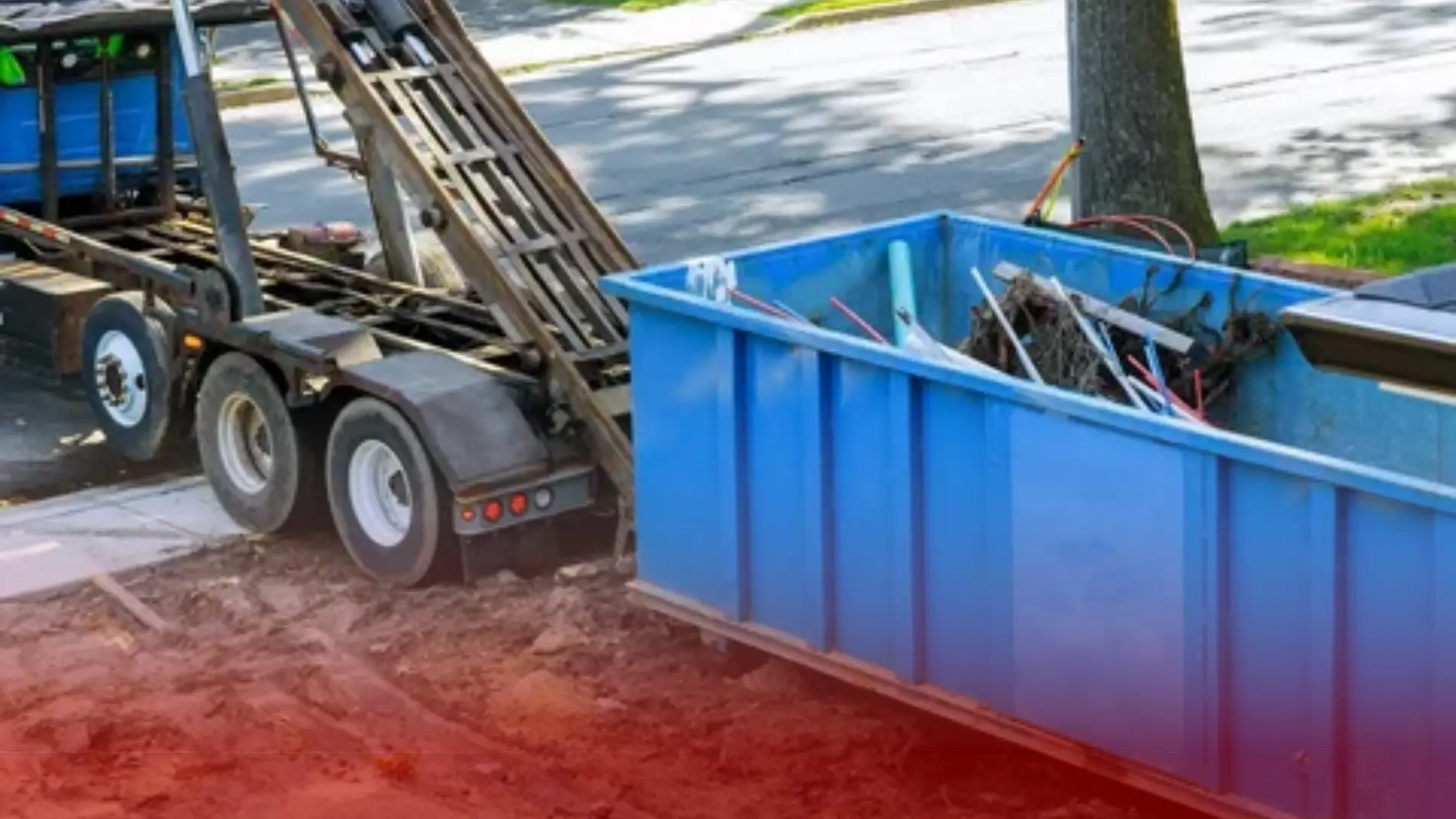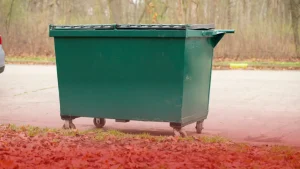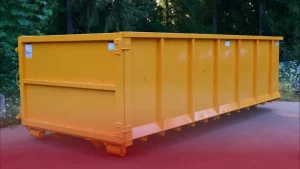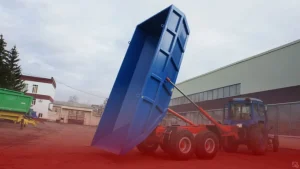Managing waste during large projects like renovations, cleanouts, or construction can quickly become overwhelming. Whether you’re updating your home, cleaning out an entire property, or working on a construction site, a rental dumpster can make waste disposal easier and more efficient. Instead of making multiple trips to the landfill or relying on standard trash bins, a rental dumpster offers a practical, cost-effective solution to manage debris.
In this article, we will explore the benefits of a rental dumpster, how to choose the right size for your needs, and the factors that influence rental costs. Understanding how a rental dumpster works will help you make an informed decision and streamline your waste removal process.
What Is a Rental Dumpster?
A rental dumpster is a large, durable container provided by a waste management company for temporary use. These dumpsters are used to collect and store waste during various projects, such as home renovations, cleanouts, landscaping jobs, or construction work. Once the dumpster is filled, the rental company will pick it up and haul it away for proper disposal.
Rental dumpsters come in various sizes, ranging from small containers for minor cleanups to large bins used for major construction projects. The flexibility of a rental dumpster allows homeowners, contractors, and business owners to manage waste efficiently and keep their work sites organized.
Why Should You Rent a Dumpster?
Renting a dumpster offers several benefits, especially when dealing with large amounts of waste. Whether you’re tackling a home improvement project or managing a construction job, a rental dumpster can help streamline the waste removal process. Here are some of the main reasons to consider renting a dumpster:
1. Convenience and Efficiency
Renting a dumpster provides a convenient way to dispose of waste without the need for multiple trips to the local landfill. Instead of handling waste by yourself, a rental dumpster allows you to place all your debris in one central location. This is particularly helpful for large projects, where hauling trash in smaller vehicles can be time-consuming and inefficient. A rental dumpster is delivered to your property, and once it’s filled, the rental company picks it up—making waste disposal easier and faster.
2. Large Capacity for Bulk Waste
One of the biggest advantages of using a rental dumpster is the large capacity. Unlike regular trash bins, which can only accommodate a limited amount of waste, rental dumpsters come in a range of sizes to accommodate everything from small cleanup jobs to large-scale construction projects. With a rental dumpster, you can ensure that all your waste is removed at once, without needing to make multiple trips to dispose of it.
3. Cost-Effective Waste Disposal
Although renting a dumpster may seem expensive, it’s often more cost-effective than paying for multiple trips to a landfill or hiring a junk removal service. Many rental companies offer flat-rate pricing that includes delivery, pickup, and disposal fees. By paying one flat fee, you avoid additional charges and save money on hauling costs.
4. Safer Work Environment
When handling large projects, keeping your worksite clean is crucial for safety. A rental dumpster helps keep debris organized and out of the way, reducing the risk of accidents. Whether you’re dealing with sharp construction materials or bulky furniture, a dumpster provides a safe space to dispose of waste, allowing you to focus on the task at hand.
5. Environmentally Responsible Disposal
Many rental dumpster companies prioritize environmentally responsible waste disposal. These companies often work with recycling centers to ensure that recyclable materials are diverted from landfills. Renting a dumpster through a reputable company ensures that your waste is disposed of in accordance with local regulations and sustainability practices.
How to Choose the Right Rental Dumpster Size?
Choosing the right size rental dumpster is essential to ensure that you don’t overpay or run out of space. If you choose a dumpster that’s too small, you may need to rent another one, leading to additional costs. Conversely, renting a larger dumpster than you need can result in paying for unused space. Below are the most common rental dumpster sizes and their typical uses:
10-Yard Dumpster
A 10-yard dumpster is suitable for small cleanouts or minor renovations. It can hold around 10 cubic yards of waste, which is roughly equivalent to three pickup truck loads. This size is ideal for garage cleanouts, small basement projects, or small landscaping jobs.
20-Yard Dumpster
The 20-yard dumpster is a versatile option that works well for medium-sized home renovation projects or larger cleanouts. It can hold up to 20 cubic yards of waste, which is equivalent to about six pickup truck loads. This size is perfect for projects such as kitchen remodels or roofing jobs.
30-Yard Dumpster
For larger projects, such as home renovations, construction projects, or major cleanouts, a 30-yard dumpster is a great choice. It can hold around 30 cubic yards of waste, or roughly nine pickup truck loads. This size is commonly used for large home renovations, office cleanouts, or commercial construction jobs.
40-Yard Dumpster
The 40-yard dumpster is the largest standard size available and is ideal for major construction or demolition projects. It can hold up to 40 cubic yards of waste, which is approximately 12 pickup truck loads. This size is perfect for large-scale projects where substantial debris is generated.
What Are the Costs Associated with Rental Dumpsters?
The cost of a rental dumpster varies depending on several factors, including the size of the dumpster, the location, the rental duration, and the type of waste being disposed of. Here’s a breakdown of the primary cost factors:
1. Dumpster Size
As mentioned earlier, the size of the dumpster is a key factor in determining the cost. Larger dumpsters typically come with higher rental fees due to the increased capacity and weight allowance. It’s important to choose a size that fits your needs to avoid paying for unnecessary space.
2. Rental Duration
Most rental dumpster companies offer rental periods ranging from 7 to 14 days. If you need the dumpster for a longer period, additional daily fees may apply. Be sure to confirm the rental duration and any extended rental charges before booking the dumpster.
3. Type of Waste
The type of waste you’re disposing of can also affect the cost. Some rental companies may charge extra fees for handling certain materials, such as heavy construction debris, hazardous materials, or large appliances. Always check with the company about any specific waste restrictions or additional fees.
4. Delivery and Pickup Fees
Some rental companies may charge delivery or pickup fees, especially if your location is farther from their base of operations. Be sure to ask about these fees when getting a quote for a rental dumpster.
5. Weight Limits
Most rental dumpsters come with weight limits, and exceeding these limits can result in additional charges. Make sure to inquire about the weight allowance for the dumpster you’re renting to avoid overage fees.
Conclusion
Rental dumpsters provide a convenient, cost-effective way to manage waste during home renovations, construction projects, and cleanouts. By choosing the right size, understanding the costs involved, and selecting a reliable rental service, you can ensure that your waste disposal is efficient and affordable. If you’re planning a project and need a rental dumpster, make sure to reach out to a trusted company for guidance. For more information on rental dumpsters and how they can help you with your next project, visit Dumpster Rentals Geneva.
FAQs
1. How long can I rent a dumpster for?
Most rental dumpsters are available for 7 to 14 days. However, you can inquire about extending the rental period if needed, with additional fees.
2. Can I rent a dumpster for a commercial project?
Yes, rental dumpsters are suitable for both residential and commercial projects. You can discuss your specific needs with the company to find the right size and service.
3. What type of waste can I put in a rental dumpster?
Most rental dumpsters accept household waste, construction debris, and yard waste. Hazardous materials, such as chemicals or electronics, are typically not allowed.
4. How do I choose the right size dumpster?
Choose a dumpster size based on the volume of waste you need to dispose of. Smaller projects typically require a 10-yard or 20-yard dumpster, while larger renovations or construction projects may require a 30-yard or 40-yard dumpster.




